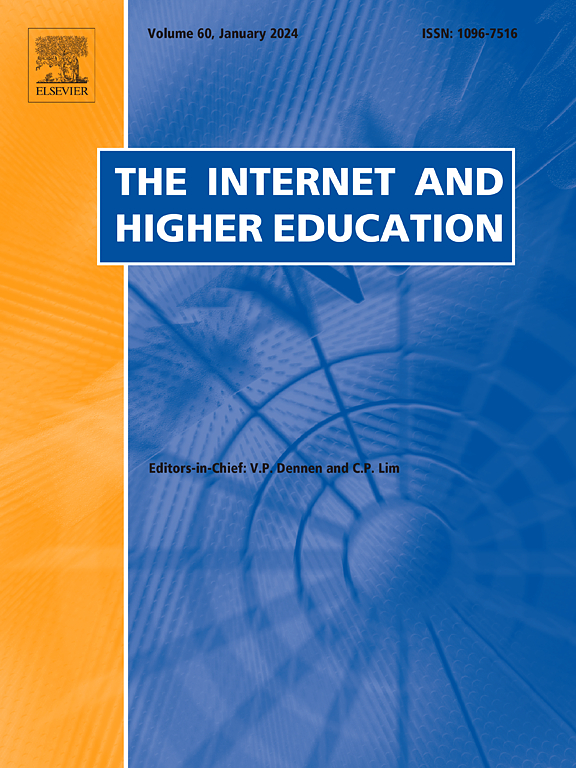人工智能(AI)的功能和整个教学周期的伦理考虑:在线高等教育中人工智能的系统回顾
IF 6.8
1区 教育学
Q1 EDUCATION & EDUCATIONAL RESEARCH
引用次数: 0
摘要
随着人工智能(AI)的发展,有关其在教育领域潜力的讨论引起了人们的极大关注。这篇系统综述综合了人工智能在在线高等教育中的应用,特别是确定了人工智能在整个在线教学周期中使用的各种方式。我们分析了55项研究,重点关注出版趋势、研究方法和质量、人工智能在设计、促进、评估和评估阶段的启示,以及在此背景下的伦理考虑。研究结果揭示了人工智能系统和机器学习(ML)模型在各种任务中的应用,例如在设计中建立学习目标,在促进中支持认知,在评估中自动评分,以及在评估中衡量教学质量。我们还讨论了理论框架的有限结合、定量方法的主导地位、大数据的关注以及个性化和适应的趋势。对每个研究阶段的伦理考虑进行了分类-数据收集,分析,解释和使用,重点是人工智能生成输出的验证方法。这些发现通过突出从业者所需的可能性和能力以及推断研究人员的潜在机会,对有效整合人工智能技术具有重要意义。本文章由计算机程序翻译,如有差异,请以英文原文为准。
The affordances of Artificial Intelligence (AI) and ethical considerations across the instruction cycle: A systematic review of AI in online higher education
As Artificial Intelligence (AI) advances, discussions regarding its potential in education have attracted significant attention. This systematic review synthesizes AI affordances in online higher education, particularly identifying various ways AI is used throughout the online instruction cycle. We analyzed fifty-five studies focusing on publication trends, research methodology and quality, AI affordances during the design, facilitation, assessment and evaluation stages, and ethical considerations in this context. The findings revealed the applications of AI-empowered systems and Machine Learning (ML) models in various tasks such as establishing learning objectives in design, supporting cognition in facilitation, automatic grading in assessment, and measuring instruction quality in evaluation. We also discussed the trends regarding the limited incorporation of theoretical frameworks, a dominance of quantitative methods, a focus of big data, and a tendency towards personalization and adaptation. The ethical considerations were categorized for each research phase - data collection, analysis, and interpretation and usage, with an emphasis on validation approaches for AI generated outputs. These findings have implications on effectively integrating AI technologies by highlighting possibilities and competencies required for practitioners and inferring potential opportunities for researchers.
求助全文
通过发布文献求助,成功后即可免费获取论文全文。
去求助
来源期刊

Internet and Higher Education
EDUCATION & EDUCATIONAL RESEARCH-
CiteScore
19.30
自引率
4.70%
发文量
30
审稿时长
40 days
期刊介绍:
The Internet and Higher Education is a quarterly peer-reviewed journal focused on contemporary issues and future trends in online learning, teaching, and administration within post-secondary education. It welcomes contributions from diverse academic disciplines worldwide and provides a platform for theory papers, research studies, critical essays, editorials, reviews, case studies, and social commentary.
 求助内容:
求助内容: 应助结果提醒方式:
应助结果提醒方式:


